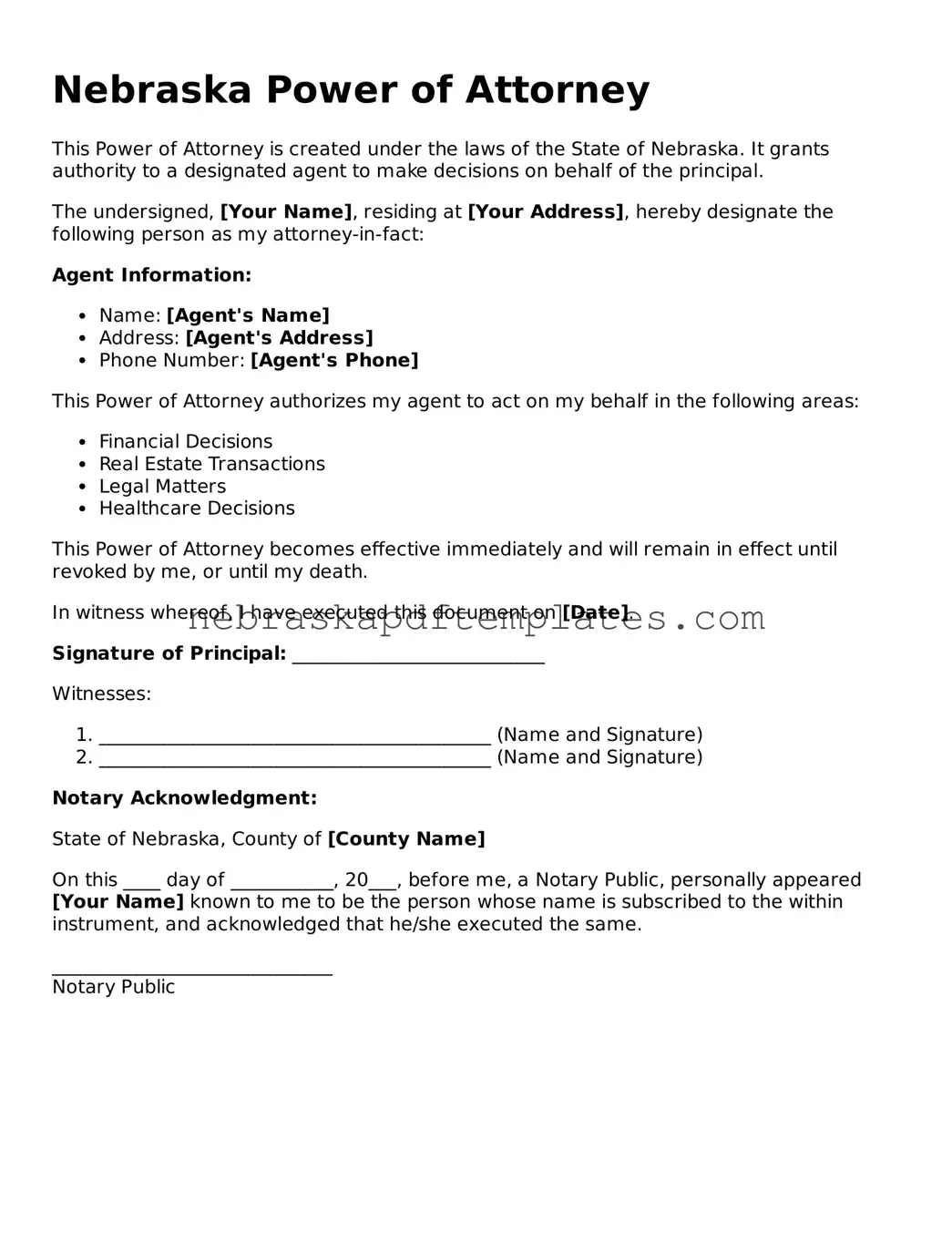Attorney-Verified Power of Attorney Document for Nebraska
A Nebraska Power of Attorney form is a legal document that allows one person to grant another the authority to make decisions on their behalf. This can include managing finances, making medical decisions, or handling legal matters. To ensure your wishes are respected, fill out the form by clicking the button below.
Access Editor Here

Attorney-Verified Power of Attorney Document for Nebraska
Access Editor Here
Finish your form now
Finalize Power of Attorney online — edit, save, and download effortlessly.
Access Editor Here
or
➤ Power of Attorney
